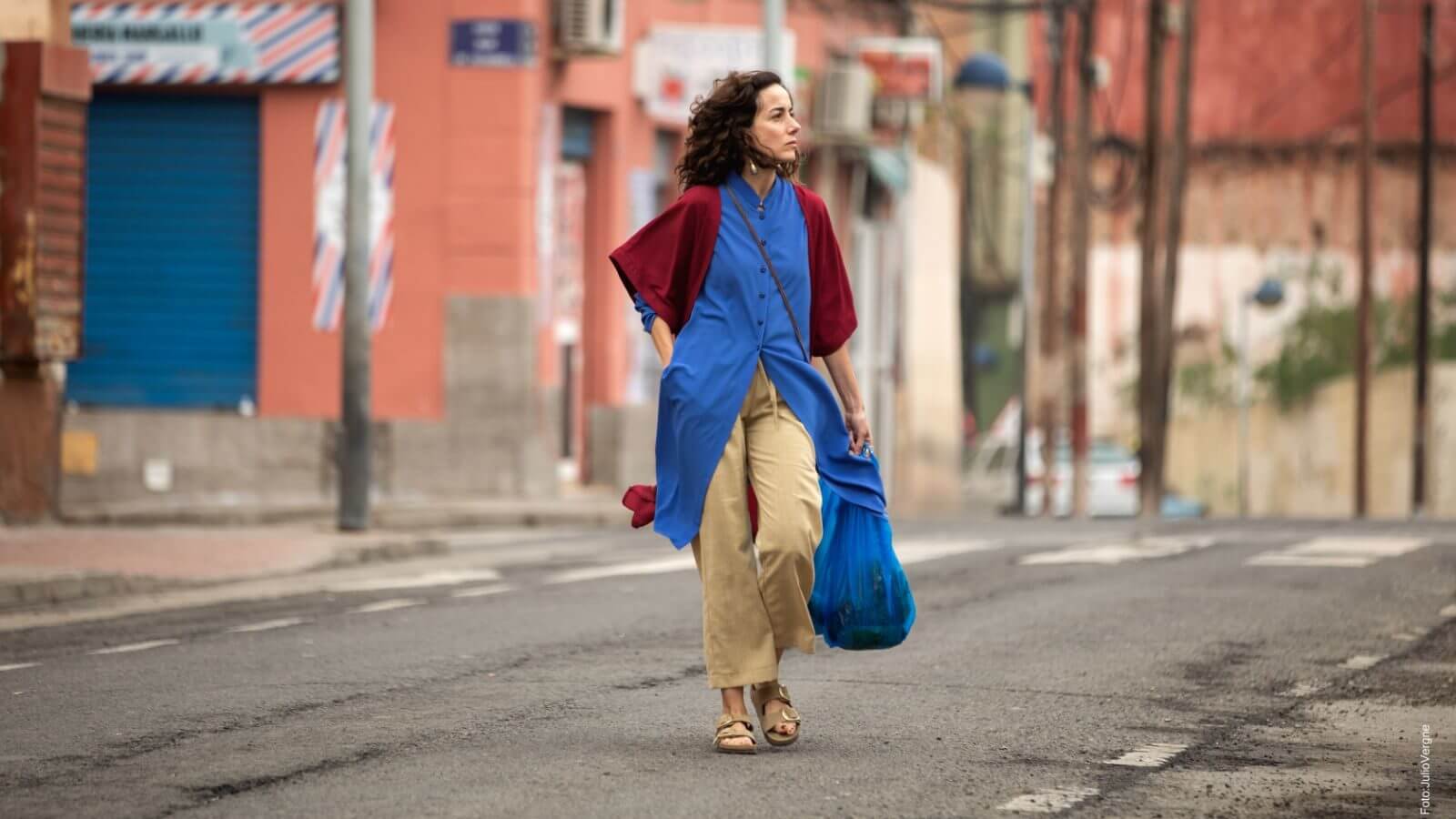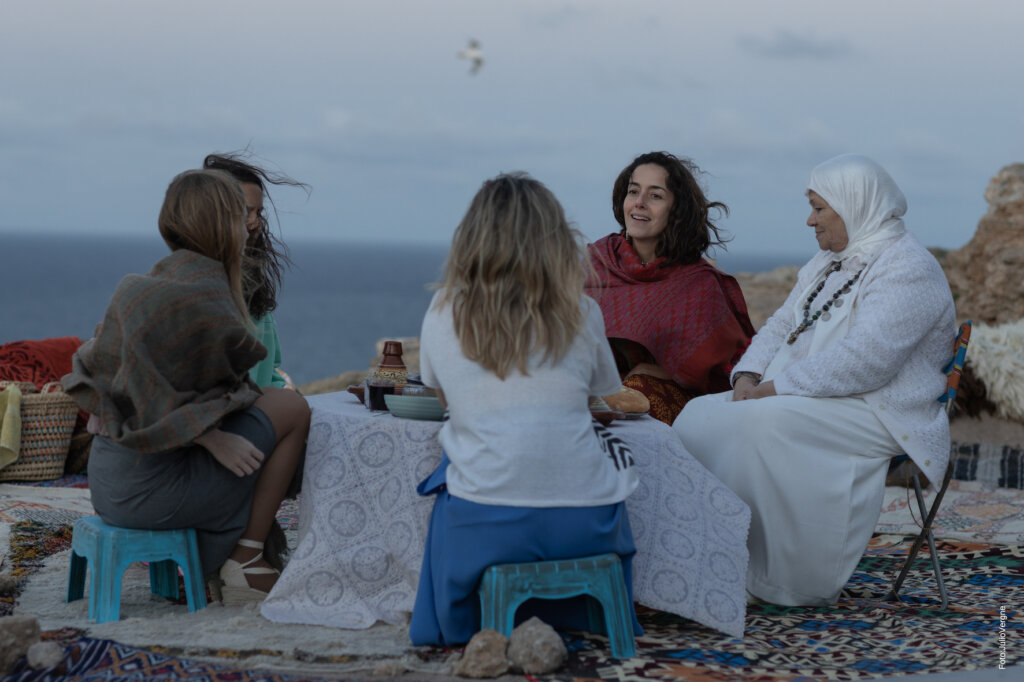Does a small autonomous city in Morocco hold the key to religious coexistence?
A new film set in Melilla, a Spanish city on the edge of Morocco, features friendship between Jews, Christians and Muslims

Graphic by Angelie Zaslavsky
Melilla, an autonomous Spanish city at the tip of Morocco, sounds like paradise. You’ve got the Mediterranean weather of course, but the real draw is the culture — Muslims, Christians and Jews, all living peacefully in the strange liminal ground of Europe but not-Europe, North Africa yet not quite.
Yet in Alegría, a debut film from Spanish director Violeta Salama, things don’t feel so idyllic. The film follows the titular Alegría, played by Cecilia Suárez, who grew up Jewish in Melilla and has recently returned to the deserted family compound. In a way, her life is representative of the city — her best friend is Christian and runs a clinic in the city, and a young Muslim woman, Dunia (Sarah Perles), is her housekeeper and companion.
But for Alegría, Melilla isn’t an idyllic place; it’s the site of personal trauma and ancestral baggage. And when her family, who all live in Jerusalem now, come to stay for niece Yael’s wedding to a local boy, tensions rise.
For reasons we never quite learn, Alegría rejected her Jewish identity long ago, and she resents having to host her observant family — to hang mezuzahs on the doorposts, to make Shabbat meals and put timers on the lights, to dig out an old tallit and, worst of all, to go to the synagogue and talk with the rabbi, whom she almost married.
Worst of all, she resents her family for moving to Israel — which she seems to see as a direct affront to Melilla, as a place where Jews, Muslims and Christians cannot live peacefully side by side — and taking her adult daughter with them.
“Can you imagine a daughter of yours becoming a nun?” Alegría asks her Christian friend, who shakes her head. “Well that’s exactly it. But worse. Having one kid after another. Working the land for the state of Israel without getting paid. Can you imagine it?”

Alegría’s tempestuous relationship with her daughter is just one of the overlapping plots in the film, all of which layer religion and family tension and global politics and class. It’s a lot to juggle, and Alegría gives most of it short shrift. We never get much insight into why Alegría resents Judaism and Israel. Her former romance with the rabbi is referenced constantly yet never fleshed out. We barely meet Jacobo, Yael’s boisterous fiancé. A fraught border crossing hints at, but neglects to explain, the city’s relationship with Morocco.
But Melilla comes to life in Salama’s hands, the city itself becoming the most compelling character in the film. The director grew up in Melilla, the child of a Jewish father and a Christian mother, and Alegría showcases Salama’s love and tenderness for her hometown in all its complexities.
When Dunia has to figure out how to cook kosher food for Alegría’s religious relatives, a Muslim shopkeeper sells her new cooking tools and explains to her in Arabic how to keep meat and milk separate. Later, when Dunia’s Moroccan grandmother cooks them all a meal, she laughs at her granddaughter’s worries about her food — a longtime resident of this mixed culture, she already knows how to keep kosher.
And the film paints Judaism, despite Alegría’s own reservations, as both flexible and beautiful. On Shabbat, the ostensibly strictly observant men of the family secretly program the Shabbat timer to turn the TV on mid-Saturday for the big football game. Near the end of the movie, in a stunningly shot scene, Yael does her mikveh immersion in the ocean at Melilla’s edge.
There are scenes when things are a little too on the nose, such as when Yael and Dunia each rebel against their respective religious limits, Dunia drinking wine and Yael smoking a joint. At another point, Alegría tells a myth about peaceful coexistence in Melilla, and at the end of the movie, the Christian, Muslim and Jewish women sing a song about religious peace.
But in the small, human moments, Alegría shines — just as the small, human moments keep Melilla balanced. Neither Europe nor North Africa, not Jewish or Muslim or Christian. More than the border tensions or the politics that documentaries and peace groups love to focus on, this is the core to coexistence — nothing more complicated than shared humanity.
Alegría is the closing film of the New York Jewish Film Festival, screening on January 22.

















